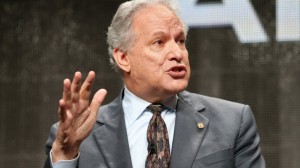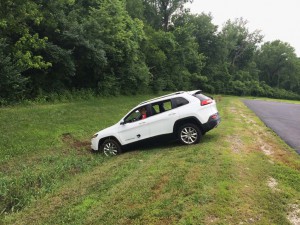
NHTSA Administrator Mark Rosekind is asking for more funding to foil cyber hacking in vehicles, but refusing to use outside experts to help find and fix problems.
Plenty of noise has been made by federal officials related to cyber security in cars, trucks, crossovers and SUVs in the wake of two hackers in Pittsburgh managed to run a Jeep Cherokee into a ditch in St. Louis with a few simple keystrokes.
Few have been louder about the issue than Mark Rosekind, administrator for the National Highway Traffic Safety Administration, but while sounding the alarm for “getting out ahead” of cyber-security issues, he’s also calling attention – loudly – to the fact the agency is understaffed.
Right now, there are seven staffers on the agency’s cyber-security team: four in Washington D.C. and another three in East Liberty, Ohio. That plucky group is charged with monitoring, testing and resolving issues with all aspects of cyber-terrorism as it relates to vehicles.
Needless to say, Rosekind is supporting his team, but less than optimistic about their odds.
“We had 80,000 complaints and eight people doing it,” Rosekind said during a recent stop in Michigan, Autoblog reported. “We have a pretty good cyber-security team, and they’re really great, but they’re really nowhere close to getting through millions of lines of code and the future things that are coming.”
The team, according to federal documents, is charged with all aspects of security ranging from searching and testing for vulnerabilities in vehicles, developing solutions for those problems as well as responding to complaints about issues. Rosekind wants more help and he’s not shy about asking for it.
“The reality is you can’t keep telling us to do all this stuff and not (fund) it,” Rosekind said. “It’s this classic responsibility without the authority, right? Go fix this, and go do this rule and do whatever, and with it you need the expertise and people and resources to get it done. I think this is going to be huge, because cyber security is the one that’s going to touch all of us.”
(NHTSA Chief signals crackdown on auto industry testing. For more, Click Here.)
Since being appointed to head up the safety agency, Rosekind has pledged to redouble efforts and expand into new areas to improve the safety of vehicles. However, he’s also repeatedly issued calls for additional funding for more staffers and improved facilities to allow the agency to meeting those goals: with little success.
That lack of support might suggest that turning to outside vendors for help might be a fine way to achieve his goals. In fact, most often it’s those outside actors find and point out the problems in the systems. However, he and Transportation Department officials have suggested using outside help causes more problems than it solves.
He also suggested that the automakers are best equipped to discover and solve the problems with their systems. While that may be true, U.S. makers haven’t rushed to tackle these problems. In fact, Fiat Chrysler had been saying for more than a year it was aware of issues and that it would resolve them. However, it wasn’t until the infamous Cherokee incident that the maker issued a recall on 1.4 million vehicles to take care of the problem.
Further, Wired magazine reported it took General Motors five years to fix the OnStar vulnerabilities discovered in 2010 by the Cal San-Diego and Washington research team that basically allowed for the same type of incursion.
(Click Here for details about how the VW scam could prove deadly.)
While NHTSA and the DOT might have faith the automakers, not surprisingly Senators Ed Markey (D-Massachusetts) and Richard Blumenthal (D-Connecticut) aren’t as easily swayed. The pair, who seem ready to lock horns with automakers at every turn, proposed legislation in July that would inform consumers about how well their vehicles protect security and privacy against minimum standards.
They’ve also sent automakers a series of questions about their readiness to defend against cyber attacks. Last year, the senators conducted a similar probe, which found only two of 15 automakers were capable of defending against a real-time infiltration.
NHTSA is still charging ahead with its automaker-run program of self-reporting issues with its Information Sharing an Analysis Center where automakers that agreed to form the partnership, are supposed to pool information on threats and best practices. Established 15 months ago, there are no active participants yet.
(Majority of Americans believe all automakers are cheating, finds new survey. Click Here for more.)
Jon Allen, a principal at Booz Allen Hamilton who has helped establish the framework of that information-sharing network, told Autoblog an executive committee is still forming, an executive director must be chosen and then the new group must decide how to set up an intelligence portal to be shared among automakers. He expects it to be “fully operational” by November.


I’d like to see the SAE take a lead.
I’d like to see congress stop pointing fingers and support their mandates with cash so results can be reached. They cut government and increase demands. Sounds like the company I retired from,,,,,,, and they are slowly failing too.